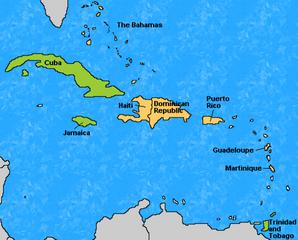
Asthma, breathing problems
If you have Asthma it means you sometimes find it hard to breathe.
Asthma attacks can happen for lots of reasons, people have them because they are allergic to cats for example or because the air around them is smoky or when they have been exercising. Asthma can happen at any age and if you have problems breathing you should go and see your doctor. They can give help either with tablets or an inhaler.
An inhaler is a plastic tube with medicine inside which is breathed in. It goes straight to the lungs and helps relax the muscles making it easier to breathe. Having asthma doesn’t mean you can’t do exercise.
Lots of world famous sportsmen and women have asthma (Ian Botham is one) you just have to know how to control it.
Diabetes
This is when the body cannot use up glucose – which gives you energy – in the right way. The glucose hangs out in the blood making it move more slowly and the person can become tired and feel unwell.
People with diabetes often help their body with injecting insulin. This helps the blood use up the glucose.
People with diabetes need to be very careful with their diet – need to eat less fatty foods, less sugar and salt.
Exercise is also very important and doctors can give people information about how to test the blood to make sure it has the right amounts of everything in it!
Diabetes does not go away but with careful looking after people lead normal healthy lives.
Glaucoma, eye problems
Everyone’s eyes make a special fluid. If a person has Glaucoma this fluid bungs up and means the person cannot see properly.
When you have an eye test you will be checked for Glaucoma and if it is caught early will be treated with no problems.
This is why it is very important to get your eyes examined regularly and make sure it is part of your HAP.
Sickle Cell Anaemia
You cannot catch or develop this it is something that is inherited – passed on in families and is in the blood.
Blood cells should be soft and squidgy but people with Sickle Cell have some hard cells. These make blockages and can mean lots of pain in the chest, bones and tummy. Doctors can help with medicines and vitamins to help the body make soft squidgy cells or a blood transfusion – pump some healthy blood into the body, but the disease does not go away.
If you have it you need to eat healthy food, drink lots of water and have lots of rest. You also need to keep warm and remember you are more likely to get the flu and other illnesses so its very important you look after your body.
Skin Care
It is important you have a good skin care routine that you do every day to keep your skin looking and feeling healthy.
You should decide what type of skin you have and buy products that are specially for your skin type. If your skin is itchy and flakey you probably have dry skin. If it is greasy to touch or shiny to look at you probably have oily skin. If you are not happy with your skin you should suggest that as part of your Health Action Plan you should see a dermatologist – skin doctor. They will talk to you about what things to use on your skin and what works best. Dry skin can be very uncomfortable.
A good tip is to get a gentle exfoliator – face or body wash with little beads in to get rid of dead skin; and of course a good moisturiser.
It is important no matter what your skin type that you wear sun cream when you go out on a sunny day. It protects your skin from the sun – another way of keeping it healthy.
Stroke
This is when part of the brain doesn't get enough blood because the blood has clotted (bunged up) or a vessel (carrying the blood) has broken.
It means part of the brain shuts down and can be very serious. The brain can forget things it used to know – like how to make the arm move or the mouth speak. Sometimes the person can learn these things over again.
You can help prevent strokes by not smoking, healthy food and exercise – by looking after your body.













